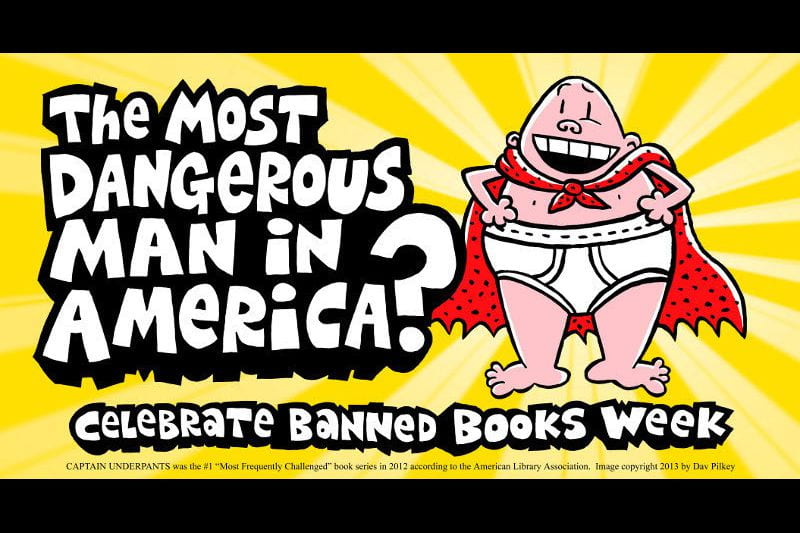
T.E. Lawrence by Daniel Wolfe was removed from the Anaheim California School District in 2000 because school officials said the book is too difficult for middle school students and that it could cause harassment against students seen with it. The American Civil Liberties Union of Southern California filed suit in Doe. v. Anaheim Union High School District alleging that the removal is “a pretext for viewpoint-based censorship.” The ACLU claims no other books have been removed from the junior high library for similar reasons, even though several, such as works by Shakespeare and Dickens, are more difficult reading.
The ACLU contends that the school officials engaged in unconstitutional viewpoint discrimination by removing the book because it contains gay and lesbian material.
The Captain Underpants series is continually among the most banned books in the United States, and the complaint is most often that it is “unsuitable for the age group.” As the managers of the famous Powell’s Books state on their website: “There’s probably a legitimate argument to be made that Fifty Shades of Grey is unsuitable for some age groups. But the Captain Underpants series, which has made the Top Ten list five times since 2002 and features characters like talking toilets and wicked wedgie women, is definitely suited to an elementary school audience. (Not that we don’t find talking toilets funny. But they’re even funnier when you’re six.) The real difficulty with labeling a book ‘unsuited to age group’ is that children mature at different rates and bring different life experiences to their reading. Maybe your six-year-old is terrified of toilets and potty training was a nightmare. Or you think fart jokes are gross. That’s okay! But there are a lot of grade schoolers out there whose lifelong bond to reading began with: “Meet George Beard and Harold Hutchins.” At least one of them works at Powell’s. Plus, as is the case with all five top reasons books are banned, ‘unsuited to age group’ is an easy way to censor books about minorities without stating that as one’s goal.”
Sources:
Doyle, Robert P. Banned Books. Chicago: American Library Association, 2001. From the Newsletter on Intellectual Freedom. 8 Mar. 2001, p. 53.
Other reasons books are banned:
Back to Webquest:
